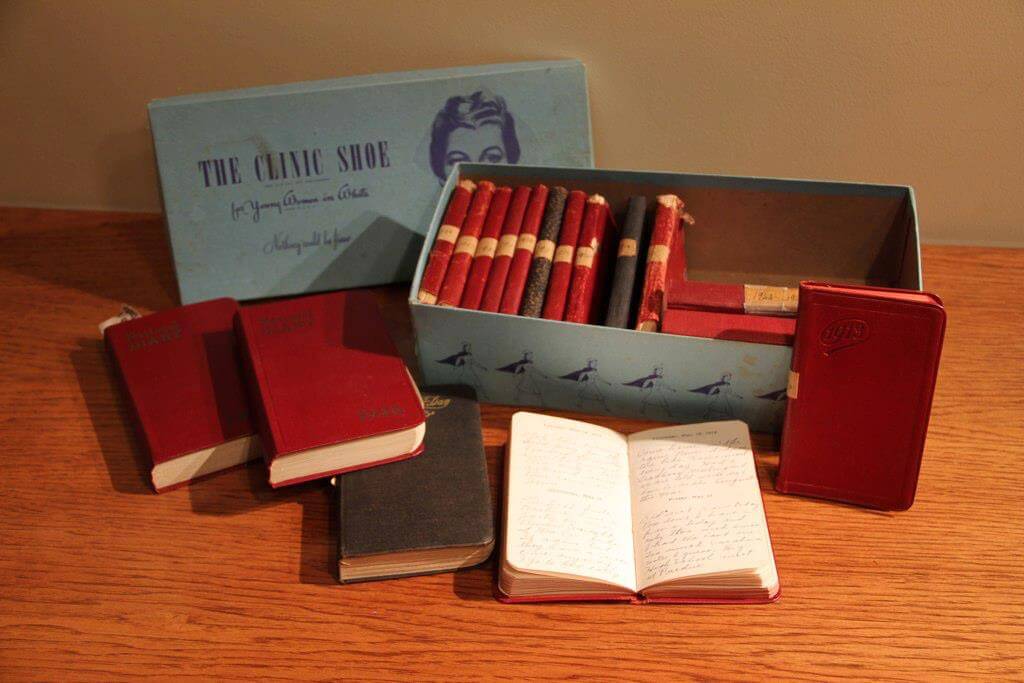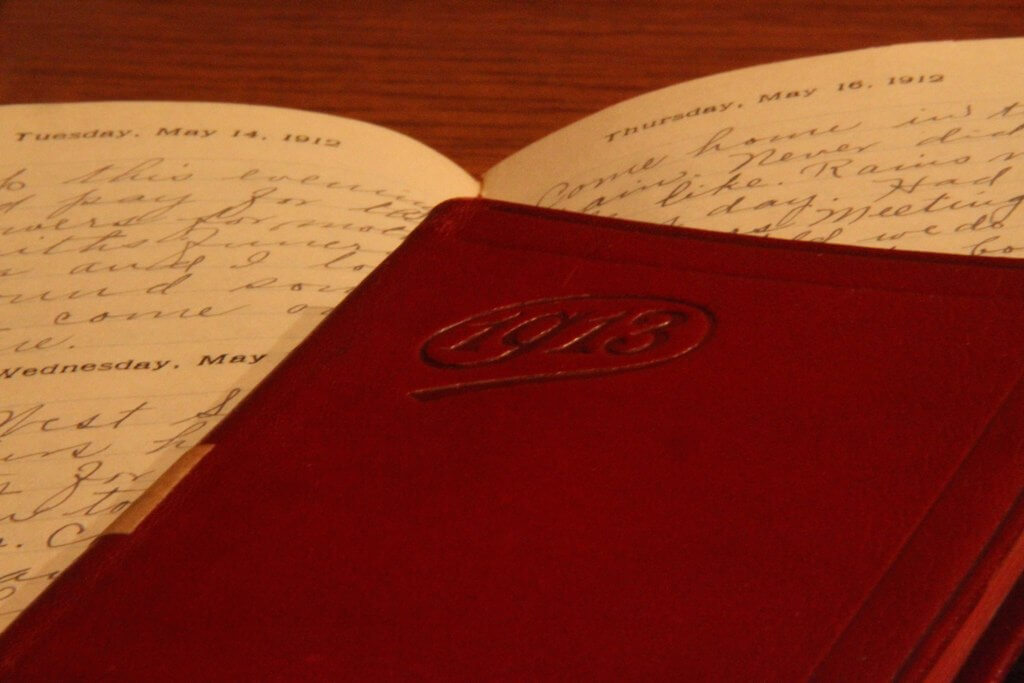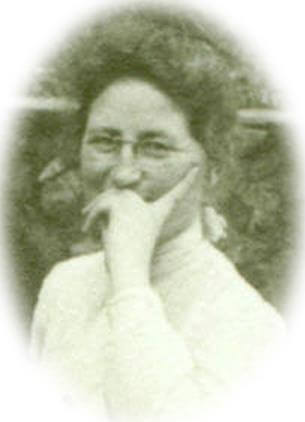
The Diaries That Brought Divided Paths, Common Ground to Life
 Lella and Kate Gaddis lived together their entire lives, for neither married. During the first half of the twentieth century, when a woman married, it was expected she would quit her job. They could not marry and also have their careers. Kate was a schoolteacher for more than 50 years at Washington School in Lafayette, Indiana.
Lella and Kate Gaddis lived together their entire lives, for neither married. During the first half of the twentieth century, when a woman married, it was expected she would quit her job. They could not marry and also have their careers. Kate was a schoolteacher for more than 50 years at Washington School in Lafayette, Indiana.
As part of my research to write Divided Paths, Common Ground, I talked with Lella and Kate’s great niece, Miriam Epple-Heath in 2010. On one of my visits with Miriam, she told me that Kate had kept diaries, and perhaps I might find some information in the diaries that would help me in writing the book. She left the room and returned with an old, light-blue shoebox.
On the lid is an image of a nurse, and the copy says, “The clinic shoe. Nothing could be finer.”
Miriam lifted the lid, and inside were 18 leather-bound diaries. They are “line-a-day” diaries, with about an inch of space allotted for each 24-hour day.

Faithfully, Kate wrote a few lines about her life each day from 1906 until 1946. And I read every word. Kate was 38 when she first wrote in her diaries, and she died at age 78.
Kate wrote about such everyday happenings as ironing; she mentioned ironing often. She talked about canning cherries, killing a chicken for dinner, and teaching her students, whom she called “Little Dears.” Kate also talked of Purdue events, such as President Winthrop Stone’s startling death after a fall from the summit of Eon Mountain in the Canadian Rockies. She wrote of world events—the sinking of the Titanic, the Flood of 1913, and both World Wars.
The diaries are like a who’s who of famous names of Purdue University, Indiana, and the United States. Lella and Kate were very close to the men of the Purdue Agricultural Department. They dined at each other’s homes and spent holidays together.
The day Miriam allowed me to take the shoebox of diaries to my writing studio began my journey of getting to know Kate and Lella.
In five months, I read nearly forty years of Kate’s life and her inner thoughts. She wrote her last words in December 1946, and I read those last words in December 2010. As the snow fell outside my window, I read Kate’s words about her last Christmas. And they were prophetic. It was hard, because I had just gained a friend, and then I would lose her.
 One of Kate’s final entries in her 1945 diary led me to know immediately how I was to end Divided Paths. The ending could be profound. Kate, sick with the ravishes of diabetes and other illnesses, wrote about losing her voice. She could not speak. The last chapter is entitled, “Voice.”
One of Kate’s final entries in her 1945 diary led me to know immediately how I was to end Divided Paths. The ending could be profound. Kate, sick with the ravishes of diabetes and other illnesses, wrote about losing her voice. She could not speak. The last chapter is entitled, “Voice.”
As I read the last diary and had to say goodbye, it hit me—I was the guardian of Kate’s words. I was the one who was picking and choosing which of her private thoughts would go out into the world. The responsibility was and is humbling.
—Angie Klink, Author, Divided Path, Common Ground
